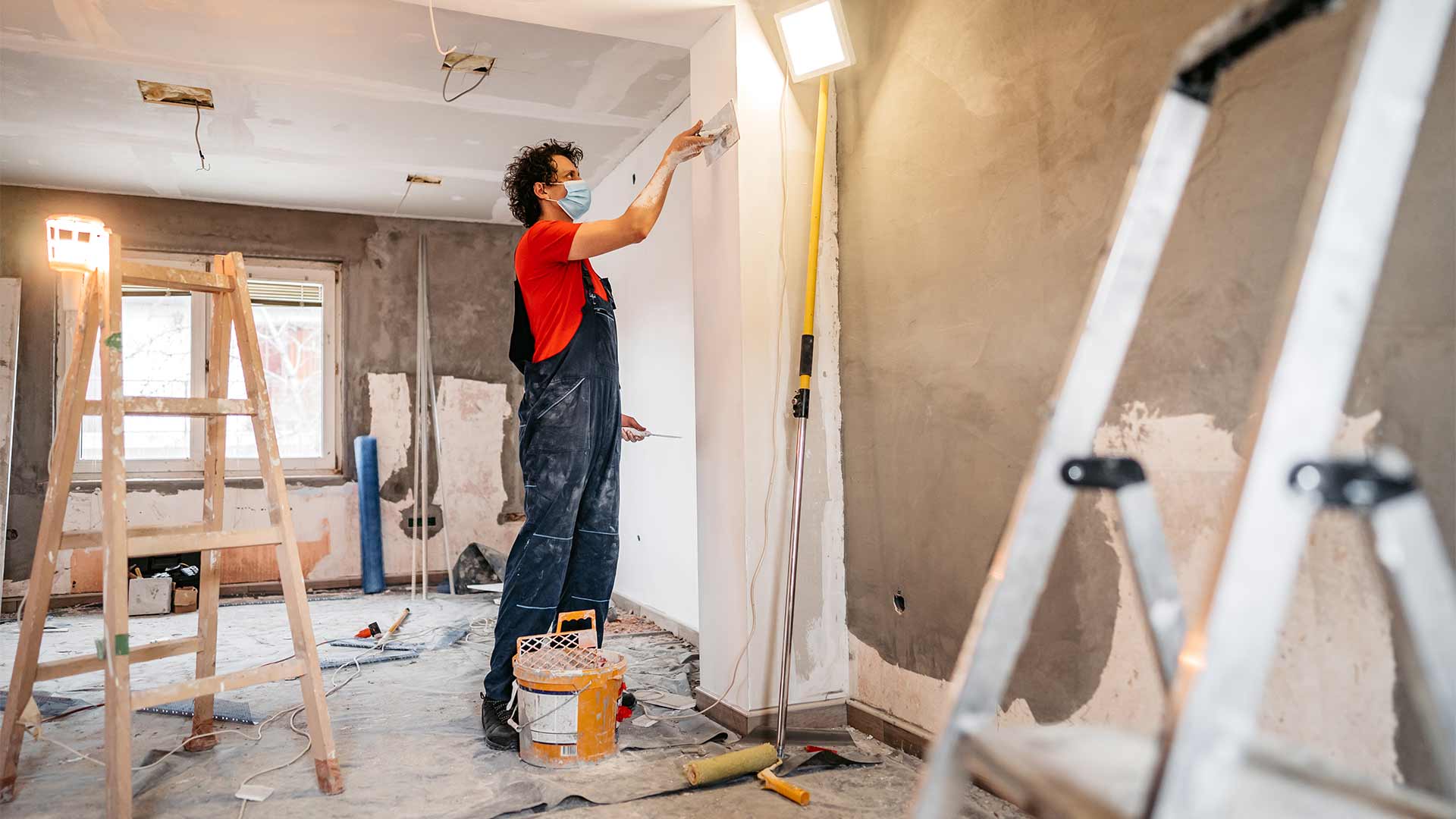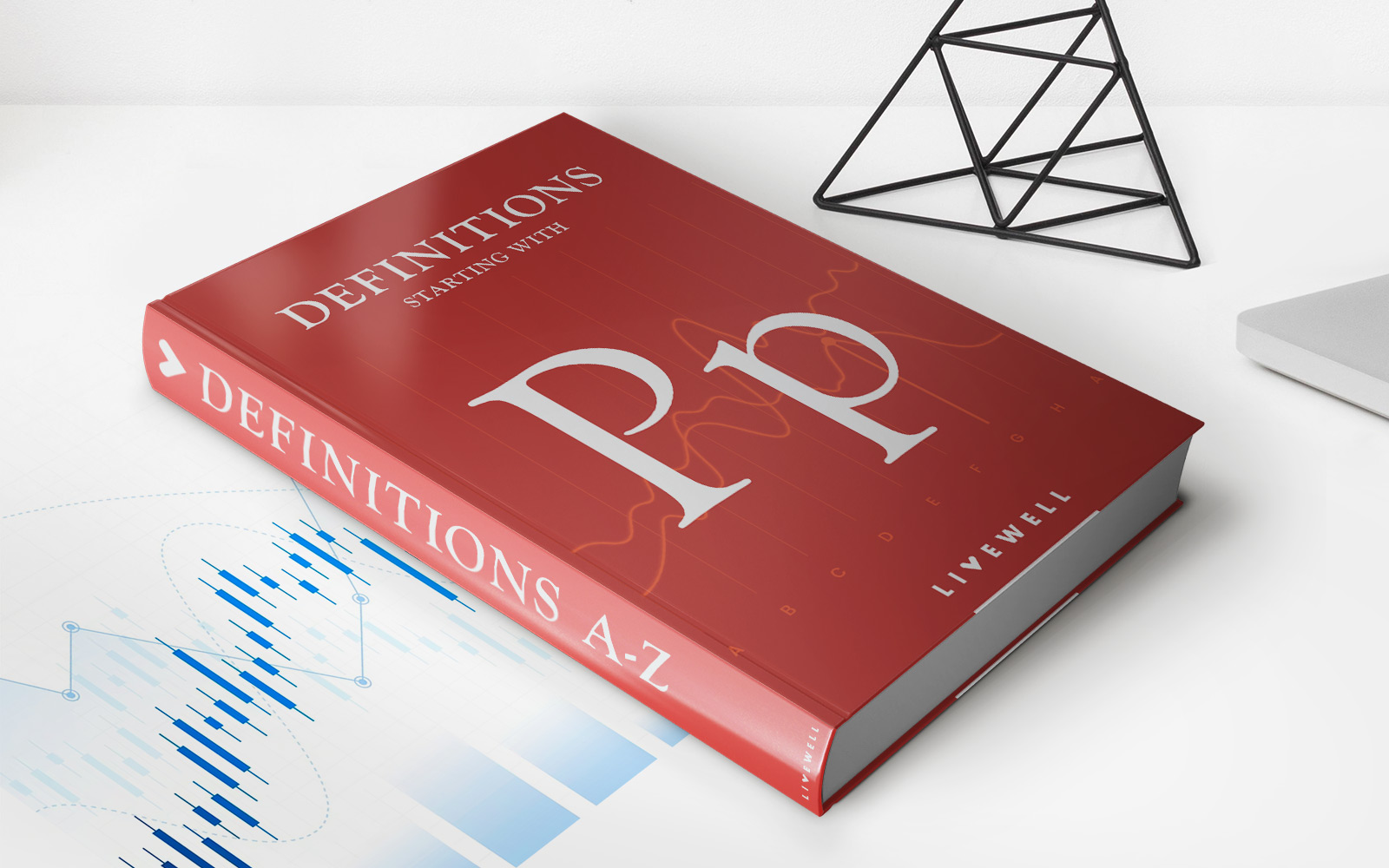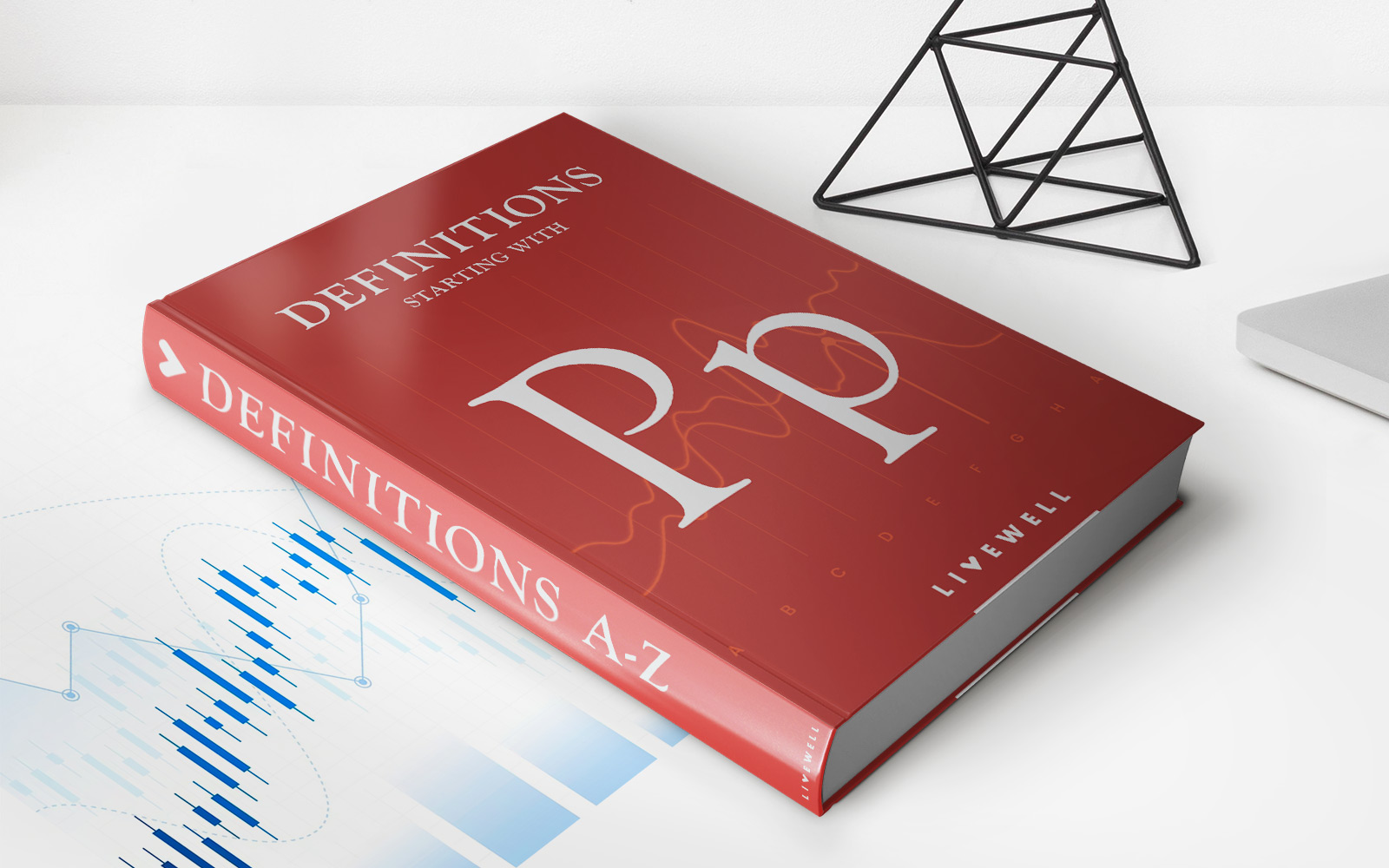

Finance
How To Buy Investment Property With Bad Credit
Modified: February 21, 2024
Learn how to finance the purchase of an investment property even with bad credit. Discover strategies and tips to overcome credit challenges and start building your portfolio.
(Many of the links in this article redirect to a specific reviewed product. Your purchase of these products through affiliate links helps to generate commission for LiveWell, at no extra cost. Learn more)
Table of Contents
Introduction
Investing in property has long been considered a profitable venture, providing individuals with a reliable source of income and potential long-term financial stability. However, when faced with a bad credit score, many aspiring investors may assume that their dreams of purchasing an investment property are out of reach. The truth is, while a low credit score can present challenges, it does not necessarily mean that buying investment property is off the table.
Before diving into the strategies and options available for those with bad credit, it is essential to understand what investment property entails. Investment property refers to real estate that is purchased with the purpose of generating income, either through rental income or capital appreciation.
Whether you are interested in purchasing a residential rental property or a commercial property, the process typically involves securing financing from a lender. And this is where a poor credit score can pose obstacles. However, with the right knowledge and planning, it is possible to navigate the challenges and successfully purchase an investment property.
In this article, we will explore various options and strategies that can help you buy investment property even with bad credit. From working with a co-signer to creative financing solutions and researching loan programs specifically designed for low credit scores, there are several avenues to explore in order to make your investment property dreams a reality.
It is important to note that while these strategies can increase your chances of obtaining financing, they do not guarantee approval. Lenders have their own criteria and risk assessments, but by being proactive and informed, you can maximize your chances of success.
Now, let’s delve into the steps you can take to overcome the hurdle of bad credit and embark on your journey towards acquiring an investment property.
Understanding Investment Property
Before diving into the world of buying investment property, it is crucial to have a clear understanding of what it entails. Investment property is real estate that is purchased with the intention of generating income or profit. This can be achieved through rental income or by selling the property at a higher value in the future.
There are different types of investment properties to consider, including residential rental properties, commercial properties, vacation rentals, and multi-unit properties. Each type presents its own set of opportunities and considerations, so it is important to determine which aligns with your investment goals and risk tolerance.
Residential rental properties are perhaps the most common form of investment property. These properties are purchased with the intention of renting them out to tenants. Residential rental properties can include single-family homes, duplexes, condominiums, or even apartment buildings. The rental income can provide a steady cash flow and the potential for long-term appreciation.
On the other hand, commercial properties refer to buildings or spaces that are leased to businesses. This can include office buildings, retail spaces, warehouses, or industrial properties. Commercial properties often yield higher rental income, but they can also come with more complexities and risks.
Vacation rentals have become increasingly popular in recent years, especially with the rise of vacation rental platforms such as Airbnb. Owning a vacation rental property allows you to generate income by renting it out to short-term guests. This can be a lucrative option, particularly in popular tourist destinations.
Lastly, multi-unit properties refer to residential buildings that contain multiple units, such as apartments or townhouses. Investing in multi-unit properties allows you to earn rental income from multiple tenants, providing a diversified income stream.
Understanding the different types of investment properties allows you to narrow down your options and focus on the ones that align with your investment goals. It is essential to conduct thorough research and assess the current market conditions to ensure that you are making an informed decision.
Now that we have gained a basic understanding of investment properties, let’s move on to evaluating your credit situation and exploring options for buying investment property with bad credit.
Evaluating Your Credit Situation
When buying investment property with bad credit, it is essential to evaluate and understand your current credit situation. This involves taking a closer look at your credit report, assessing your credit score, and identifying any factors that may be negatively impacting your creditworthiness.
The first step is to obtain a copy of your credit report from one of the major credit reporting agencies, such as Equifax, Experian, or TransUnion. Review your credit report carefully, checking for any errors or inaccuracies that may be dragging down your score. If you spot any discrepancies, report them and work towards getting them corrected. A clean and accurate credit report is crucial when applying for financing.
Next, focus on your credit score. The most commonly used credit scoring model is the FICO score, which ranges from 300 to 850. A credit score below 670 is generally considered fair or poor, while a score above 720 is deemed excellent. If your credit score is low, it indicates that you may have a history of late payments, high credit utilization, or other negative factors that lenders consider risky.
Understanding the factors that contribute to your credit score can help you identify areas for improvement. Payment history, which includes the on-time payment of bills and loans, accounts for the largest percentage of your score. Aim to make all of your payments on time and in full to demonstrate responsible financial behavior.
Another factor to consider is your credit utilization ratio, which is the percentage of your available credit that you are currently using. High credit card balances or maxed-out credit lines can have a negative impact on your credit score. Try to keep your credit utilization below 30% to show that you can manage available credit responsibly.
In addition to payment history and credit utilization, other factors that influence your credit score include the length of your credit history, new credit inquiries, and the mix of credit types you have. Take these factors into account and develop a plan to gradually improve your creditworthiness.
While having bad credit can present challenges, it doesn’t necessarily mean that you won’t be able to obtain financing for an investment property. In the next section, we will explore the various options available for buying investment property with bad credit.
Options for Buying Investment Property with Bad Credit
Buying investment property with bad credit may seem challenging, but it is not impossible. There are several options and strategies you can explore to increase your chances of securing financing for your investment venture.
One potential option is working with a co-signer. A co-signer is someone with a good credit score and financial stability who agrees to take on responsibility for the loan if you default. Having a co-signer can help offset the risk associated with your bad credit and increase your chances of loan approval. However, it is crucial to choose a co-signer wisely and ensure that they understand the implications and potential risks involved.
Another option is to explore creative financing solutions. This can include seller financing, where the property owner acts as the lender and allows you to make payments directly to them instead of a traditional financial institution. Lease options are another alternative, where you lease the property with the option to buy it in the future. These creative financing options can be more flexible and accommodating for individuals with bad credit.
Researching loan programs specifically designed for individuals with low credit scores is another avenue to consider. Some lenders offer specialized loan programs that take into account factors beyond just credit scores, such as your income and assets. These programs may have higher interest rates or require a larger down payment, but they can provide an opportunity to secure financing despite bad credit.
In addition, it is important to be open to alternative investment strategies. Instead of purchasing a property outright, you could consider partnering with other investors or participating in real estate investment trusts (REITs). These options allow you to invest in real estate without requiring a large upfront investment or relying solely on your creditworthiness.
Regardless of the option you choose, it is crucial to demonstrate your commitment to improving your creditworthiness. This can be achieved by implementing responsible financial habits, such as making timely payments, reducing debt, and managing credit responsibly. Over time, as you build a stronger credit history, you may be able to refinance your investment property or obtain better financing terms.
Remember, buying investment property with bad credit may require more effort and creativity, but it is possible with the right strategies and determination. In the next sections, we will explore specific options and steps you can take to increase your chances of obtaining financing and successfully purchasing an investment property.
Working with a Co-Signer
If you have bad credit but still want to buy an investment property, one option to consider is working with a co-signer. A co-signer is someone who has a strong credit history and agrees to take on the responsibility for the loan if you are unable to make payments.
Having a co-signer can increase your chances of securing financing because it provides additional assurance to lenders. The co-signer’s good credit and financial stability act as a form of collateral, making the lender more comfortable with the risk associated with your bad credit.
When choosing a co-signer, it is important to approach someone who has a good understanding of the responsibilities involved. They should be aware that if you default on the loan, it will impact their creditworthiness and they may be held financially liable for the remaining balance.
Typically, a co-signer is a close family member or a trusted friend who is willing to support your investment aspirations. However, it is essential to approach this arrangement with caution and professionalism. Clearly communicate your goals, plans, and expectations to ensure everyone is on the same page.
Before entering into a co-signing agreement, it is crucial to have open and honest discussions about financial obligations, including loan payments, property management, and potential risks. It is advisable to consult with a legal or financial professional to draft a co-signing contract that protects the interests of all parties involved.
Remember, while having a co-signer can increase your chances of obtaining financing, it does not absolve you from your responsibility to make timely payments. It is essential to be diligent in managing your investment property and ensuring that you can meet your financial obligations.
While working with a co-signer can be a viable option for buying investment property with bad credit, it is important to pursue other strategies alongside it. Building your credit score and exploring alternative financing options can provide more long-term solutions and independence for your investment endeavors.
In the following sections, we will explore creative financing options and loan programs specifically designed for individuals with bad credit, providing you with a comprehensive toolkit to help you navigate the process of buying investment property.
Exploring Creative Financing Options
When buying investment property with bad credit, exploring creative financing options can be a viable strategy to overcome the challenges associated with traditional lenders. These alternative methods of financing can provide you with the opportunity to secure the necessary funds for your investment venture.
One creative financing option to consider is seller financing. In this arrangement, the property owner acts as the lender and allows you to make payments directly to them instead of going through a traditional financial institution. Seller financing can be a win-win situation, as it provides the property owner with a steady income stream while giving you the opportunity to purchase the property without relying solely on your credit score.
Another option is a lease option, also known as rent-to-own. In this scenario, you rent the property with the option to buy it in the future. A portion of your monthly rent is applied towards the purchase price, allowing you to build equity over time. This arrangement can be beneficial if you need more time to improve your credit score or save for a down payment.
Crowdfunding has also emerged as a popular creative financing option for real estate investors. Through crowdfunding platforms, you can raise capital from a group of individuals who are interested in investing in real estate. This method can be particularly useful for individuals with bad credit, as the focus is on the potential of the property and the investment opportunity, rather than solely relying on individual creditworthiness.
Furthermore, consider forming partnerships with other investors. By pooling resources and combining skills and expertise, you can embark on investment property ventures together. This allows you to leverage the strengths and financial capabilities of others while minimizing your own credit limitations.
It’s important to note that when exploring creative financing options, you should thoroughly evaluate the terms and conditions involved. Some arrangements may come with higher interest rates, balloon payments, or other unique terms that may impact your investment strategy and profitability.
Additionally, seek professional advice from real estate lawyers and financial advisors to ensure that the financing options you pursue are legally sound and aligned with your investment goals. These professionals can provide valuable guidance and help you navigate the complexities of alternative financing.
Remember, exploring creative financing options requires careful consideration and due diligence. While they can provide alternative avenues for acquiring investment property with bad credit, it is important to assess the potential risks and benefits of each option before proceeding.
In the following sections, we will dive deeper into researching loan programs specifically designed for individuals with low credit scores, as well as strategies for building your credit score over time.
Researching Loan Programs for Low Credit Scores
When buying investment property with bad credit, it is essential to research and explore loan programs specifically designed for individuals with low credit scores. These specialized loan programs take into account factors beyond just credit scores and provide alternative options for financing your investment property.
Start by reaching out to local banks or credit unions in your area to inquire about their loan programs. Some financial institutions offer programs specifically tailored for individuals with low credit scores or limited credit history. These programs may have more lenient requirements or offer alternative methods of evaluating your creditworthiness.
In addition to traditional banks, consider exploring online lenders and peer-to-peer lending platforms. These platforms connect borrowers with individual investors who are willing to fund their loan requests. Online lenders may have more flexible lending criteria and consider factors beyond just credit scores when evaluating loan applications.
When researching loan programs, be sure to inquire about the interest rates, repayment terms, and any additional fees associated with the loan. While loan programs for low credit scores may be more accessible, they often come with higher interest rates or require a larger down payment to compensate for the increased risk perceived by the lender.
It is also important to read and understand the terms and conditions of the loan agreement. Pay close attention to any prepayment penalties or restrictions on refinancing, as these factors can impact your ability to modify the loan in the future.
Furthermore, consider seeking assistance from government agencies or non-profit organizations that specialize in helping individuals with low credit scores obtain financing for investment properties. These organizations can provide guidance and resources to navigate the loan application process and find programs that best suit your needs.
As you research loan programs, compile a list of potential options and compare them based on their terms, requirements, and the overall suitability for your investment goals. It’s important to evaluate the pros and cons of each program to make an informed decision.
Keep in mind that while specialized loan programs for low credit scores can provide opportunities for financing, they may not be the most favorable or cost-effective option in the long run. As you progress in your investment journey, aim to improve your credit score and explore refinancing options to secure better terms and conditions.
In the next section, we will delve into strategies for building and improving your credit score, which can ultimately increase your chances of obtaining favorable loan terms and expanding your investment property portfolio.
Building Your Credit Score
Building and improving your credit score is a crucial step in buying investment property with bad credit. A higher credit score not only increases your chances of obtaining financing but also allows you to secure more favorable loan terms and interest rates. Here are some strategies you can implement to build your credit score over time:
1. Pay Bills on Time: Timely payment of your bills, including credit cards, loans, and utilities, is the most influential factor in building a good credit score. Set up automatic payments or reminders to ensure you don’t miss any due dates.
2. Reduce Credit Card Balances: High credit card balances can negatively impact your credit utilization ratio, which is the percentage of your available credit that you are currently using. Aim to keep your credit card balances below 30% of your total available credit.
3. Diversify Your Credit Mix: Lenders like to see a mix of different types of credit on your report. Consider having a combination of installment loans (such as a car loan) and revolving credit (such as credit cards) to demonstrate responsible credit management.
4. Avoid Opening Multiple New Accounts: Opening multiple new accounts within a short period can indicate financial instability and can negatively impact your credit score. Apply for new credit sparingly and only when necessary.
5. Keep Old Accounts Open: The length of your credit history is an important factor in calculating your credit score. Even if you no longer use an older credit card, it is beneficial to keep the account open to lengthen your credit history.
6. Monitor Your Credit Report: Regularly check your credit report for errors, inaccuracies, or signs of fraud. Report any discrepancies immediately and work towards getting them corrected. You are entitled to a free credit report annually from each of the major credit reporting agencies.
7. Limit Credit Inquiries: Each time you apply for credit, it results in a hard inquiry on your credit report, which can temporarily lower your score. Minimize unnecessary credit inquiries and only apply for credit when you genuinely need it.
8. Be Patient: Building a good credit score takes time and consistent responsible financial habits. Be patient and diligent in managing your credit, and over time you will see improvements in your creditworthiness.
By implementing these strategies and practicing responsible financial behavior, you can gradually improve your credit score and enhance your chances of obtaining financing for investment property. It is important to remember that building credit is a gradual process, and there are no quick fixes. However, with determination and persistence, you can achieve a stronger credit profile.
In the next section, we will recap the key points discussed so far and conclude the article on buying investment property with bad credit.
Conclusion
Buying investment property with bad credit may present challenges, but it is certainly not an insurmountable obstacle. By understanding the different types of investment properties, evaluating your credit situation, and exploring various options and strategies, you can still achieve your goal of becoming a real estate investor.
Evaluating your credit situation and working towards improving your credit score is a crucial step in the process. From paying bills on time to reducing credit card balances and diversifying your credit mix, these actions will gradually enhance your creditworthiness and increase your chances of obtaining financing on favorable terms.
In addition to improving your credit score, you can explore creative financing options, such as seller financing, lease options, crowdfunding, or collaborating with other investors. These alternatives can provide you with the flexibility and opportunities to purchase investment property without solely relying on traditional lenders.
Researching loan programs specifically designed for individuals with low credit scores is another avenue to consider. Banks, credit unions, and online lenders may offer specialized loan programs that take into account factors beyond credit scores, providing you with additional financing options.
It is important to approach each financing option wisely, considering the terms and conditions, interest rates, and potential risks. Seeking advice from professionals in the real estate and financial industry can help you navigate through the complexities and make informed decisions.
Finally, as you build your creditworthiness and gain experience as an investor, aim to refinance your investment properties in the future. By improving your credit score and demonstrating responsible financial behavior, you can negotiate better terms and lower interest rates to optimize your investment returns.
Remember, the journey of buying investment property with bad credit requires patience, persistence, and a strategic approach. While there may be obstacles along the way, with the right mindset and determination, you can realize your dreams of becoming a successful real estate investor.
By understanding the various options available, building your credit score, and exploring alternative financing methods, you can overcome the challenges of bad credit and embark on a rewarding investment journey.














